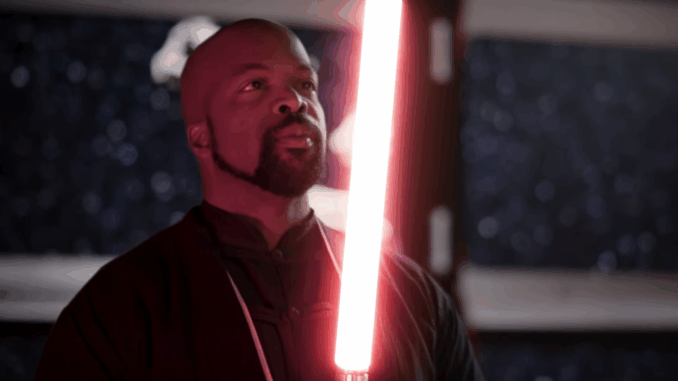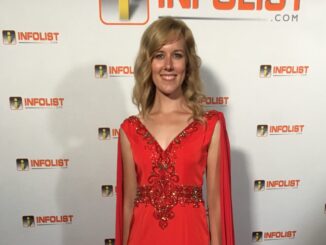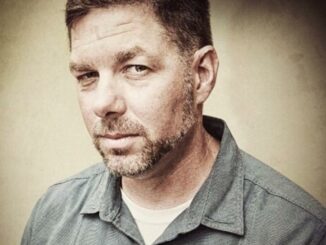
Splash Magazine Worldwide had the opportunity to talk with author, actor, director and producer Andre Gordon about his career and recent work with Tyler Perry Studios.
First and foremost congratulations on your recent book “The Middle Class Actor.” Another HUGE congratulations for your work with the fabulous Tyler Perry Studios. Can you tell us a unique experience that you had on his film set, and how it influenced your view of the film industry?

My experience on Tyler Perry’s Assisted Living was extraordinary, profoundly shaping my film industry perspective. Tyler Perry Studios impressed with its scale and thoughtful design; soundstages named after Black entertainers underscored rich history and legacy. Perry’s evolution from theater to studio empire was invigorating, a testament to vision and perseverance.
As a guest star, my philosophy centers on seamless integration. Playing Kelvon Wobblewham in “Wobblewham,” I aimed for him to feel integral, not fleeting. I focused on layering his personality to fit the show’s comedic tone. A highlight was the chemistry with J. Anthony Brown. Our scenes had magical connection, instinctive timing, and spontaneous reactions, elevating comedic impact. This collaboration and the studio’s creative atmosphere solidified my belief in collective storytelling. The Atlanta film industry, especially Perry’s productions, is strikingly fast and efficient. This rapid pace, contrasting other markets, has been a significant learning curve.
After two decades in the Los Angeles film industry, transitioning to Atlanta has been enlightening. While LA has a vast talent pool, Atlanta is a formidable, tight-knit community of passionate filmmakers, fostering a stimulating and collaborative environment.
Atlanta’s robust yet charming market has benefited my career. The speed of production honed my adaptability and decisive creative choices. This efficiency allows rapid project completion and fosters an agile workflow. Breaking into this dynamic market expanded my network and enriched my two decades of experience.
How do actors balance staying in character between takes with maintaining a healthy work environment? What’s one tip for those who struggle with this?
Maintaining character while fostering a collaborative set is crucial for actors. My method emphasizes presence and respect for the craft and colleagues. Between takes, I remain intensely present, ready to offer directors new ideas, emotions, and reactions with each shot. This ensures continuous contribution.

During setup breaks, I prepare for the next scene by reviewing lines and objectives. The key for any actor is constant presence, whether performing, waiting, or changing costumes—always focused on the task and narrative.
Critically, respect others’ preparation. Early in my career, I mistook breaks for social time. While camaraderie is vital, it shouldn’t disrupt another actor’s concentration. Recognizing others’ need for focus or quiet is professional, fostering a healthy environment built on mutual understanding and dedication.
How do you balance staying in character between takes and maintaining a healthy work environment? What’s one tip you’d offer to actors struggling with this?
Balancing the demands of staying in character with fostering a positive and respectful work environment is a crucial aspect of professional acting. For me, the time between takes is a dedicated space for staying deeply present and focused on the immediate task at hand. Our primary responsibility as actors is to continuously offer new ideas and nuanced options, and every single take presents a fresh opportunity to explore another dimension or interpretation of the scene.
When the camera isn’t rolling or a new setup is being prepared, my attention often shifts to the upcoming scenes, delving into their emotional beats and character arcs. However, the overarching advice I would offer to any actor grappling with this balance is to prioritize staying present in each and every moment. This means being fully engaged with the current scene, the immediate environment, and the needs of your fellow performers.

Describe a crucial decision you made regarding reshooting significant portions of a film. How did you approach this, and what advice do you offer producers facing similar quality control challenges?
As a director, I haven’t had to do major reshoots at my discretion. I did have an Executive Producer want to add storylines in, or at other shoots add celebrity personalities to the shoot, but when I have had creative control, I take great pains to prep and film everything I need to best tell the story. Measure twice, cut once!
To bolster your connections within the festival circuit as a producer:
For producers aiming to strengthen festival connections, my top tip is: Don’t go to get, go to give! Shift from an acquisition mindset to one of contribution. Ask: “What can I genuinely give here?” This isn’t always monetary; it can be:
- Time and expertise: Volunteer, share knowledge, or listen.
- Positive energy: Be supportive and enthusiastic.
- Your network: Make introductions, pay it forward.
- Unique perspective: Engage thoughtfully, share your vision.
- Your authentic self: Be professional and genuinely interested.
By consistently offering value—through a podcast, cameo, or positive presence—you move beyond submissions and build lasting, meaningful relationships. These connections, built on genuine contribution, are invaluable in the competitive film festival world.

Could you provide an example of a low-budget film that achieved unexpected box office success? What was the secret to its triumph, and what guidance would you offer to producers facing similar financial constraints?
Through God’s blessing, every film I’ve produced has secured distribution. The consistent key to success is always the story! How do you find the best stories to tell? Even with great actors, a weak script dooms a film. Conversely, a great, unique story significantly boosts your chances of box office success. Many filmmakers try to replicate existing narratives, but we all possess unique stories waiting to be told. Let’s make those films! Never compromise on making the story clear and impactful. Ensure your budget is visible on screen!
Can you describe a situation where you had to salvage a project after losing a key cast or crew member mid-production? How did you overcome this challenge, and what advice do you have for handling sudden personnel changes?
My first big feature as a director, we filmed in pieces over the course of months! It was brutal. Along the way, actors moved and people weren’t available. The good news was we worked so hard on making the story work with the editor that it ended up being a huge success! The editor & the writer are overlooked production keys to a fantastic movie! Choose wisely!!!
What are you working on next?
I’m working with producers Vic Aviles and Susan Marinello on my next feature, A Very Black Christmas, which I wrote. I’ve teamed up again with my friend and long time producing partner Patrick Durham for a new adventure fantasy film called Heirlooms, and I’ve raised initial funds on the feature The Christmas Express. I have several shorts I am producing to stay sharp, and acting in Studio 70’s, Knights of the Old Republic, as Gadon Thek. I just finished Star Wars, Gray Trials with them, as well as Iron Dusk, opposite Dean Cain. I recently signed with 22 Talent and they have been getting me great appointments and opportunities. Stay tuned!
You recently published a book? Tell us more about that?
I often get questions about my work on Miraculous Ladybug (as Alec/Wishmaker), other TV/commercial projects, and how kids can enter entertainment. To avoid repetition, I’ve compiled this information.
Not everyone reaches Brad Pitt or Denzel Washington’s level. Many actors work other jobs while pursuing their careers. This led me to consider: How can one financially sustain an acting career, and what steps can ease entry into Hollywood?
This 2025 updated edition offers 25 years of my entertainment industry insights, including perspectives from various actors and casting directors, based on my experiences in Hollywood, “Hotlanta,” and elsewhere, to help you achieve your goals.
In other news, my 2024 documentary, Unshakable, won at the Christian Film Festival. My 2025 short film, Don’t, recently received CFF awards for Best Micro Film, Best Actor, and Best Supporting Actress. I also completed my first year as a Faculty Fellow at The Honors College and a Clinical Adjunct at the College of Law.
For more information follow this link.




Be the first to comment